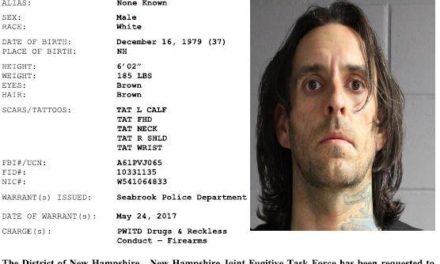
Mara: Legacy affirmed
Last night’s meeting of the Manchester Board of School Committee contained some interesting presentations and information.
As things got rolling, the board heard from Andrew Smith of the New Hampshire Department of Health and Human Services about the “Mirror Project,” a program designed to reduce Disproportionate Minority Contact by police departments by facilitating better relations between juveniles and law enforcement officers. The program educates both officers and juveniles on how to interact with each other and understand the other’s point of view using a variety of tools, including role playing. According to Smith, New Hampshire is the only state in the nation that has seen consistent and large drops in Disproportionate Minority Contact over the past four years, which has drawn national attention. He credits the improvement to the program, which he said the only one of its kind in the country and the efforts of city police departments, notably those in Manchester initiated by former Police Chief David J. Mara to reach out to minority communities.
Says city school health spending up 1.5%
The board heard from Anthem Blue Cross Blue Shield about the district’s health insurance utilization rates. In Fiscal Fifteen, the district spent just under twenty six point eight million dollars on health care for its nearly four thousand covered members, a mere one point five percent more than it spent in Fiscal Fourteen. Among the interesting points pulled from the presentation: Over forty seven percent of the covered members are between the ages of fifty five and sixty four, spouses of employees now cost more on a per person basis to care for than the employees themselves, treatment of mental disorders has moved from the top ten to the top five in claims frequency and forty two claimants accounted for more than five point six million dollars in claims, or twenty one percent of total health care spending. Cancer treatment contributed significantly to that spending. As with the city, more than half of the emergency room visits during the fiscal year were unnecessary.

Girard: Challenge on target
Also last night, at-Large Committeeman Rich Girard’s challenge to Superintendent Debra Livingston’s assertion that the state gave students who did not take the Smarter Balanced Assessment a zero was correct. At the meeting on January 11th and in a press release that night, Livingston said the district quote
“removed the scores of students who were eligible to take the assessment but didn’t.” She said quote “Those students received a ‘zero’ in each of the English/language arts and math portions of the SBAC.” And that, quote “The zeros were included in the official state and district results released last fall.”
Those statements proved not to be true.

Livingston: Up is down
The higher of the scores presented on January eleventh were the exact same scores presented to the board at a special meeting last November when administrators were questioned about whether or not zeros were given to students who didn’t take the test. At the time, the presenters didn’t know the answer. After discovering the scores reflected the results only of the students who took the test, which Girard confirmed with the state Department of Education, the district itself then added zeros for every kid that didn’t take the test to the aggregate score of each school, which actually caused their scores to go down. When the administration presented the scores with and without those zeros in January, they said removing them caused scores to go up when in reality they added them causing the scores to go down.
News from our own back yard continues after this.

NH House: Bills of note
The N H House passed H B 6 1 7 which, before an amendment, would have required police to wear cameras when interacting with the public. The bill now enables the use of cameras while governing how they’re used. Agencies that decide to use Body Worn Cameras, will retain the rights to all recordings. The cameras would only to be activated upon arrival at the scene and in any law enforcement related activities. Interestingly, the law would prohibit using cameras while using the potty. The recordings would be exempt from the Right to Know Law, except to show any restraint or use of force by an officer, excluding activities that constitute an invasion of privacy, or the discharge of a firearm, or a felony-level arrest.
Call to
The House Legislative Administration Committee will hold a public hearing on H B 15 93, which restricts fees for obtaining copies of public records and requires certain information on public official and legislative financial disclosure forms. The hearing is scheduled for two tomorrow room in 3 0 7 of the Legislative Office Building. Right to Know New Hampshire supports this bill and is encouraging those interested in improving access to public documents to contact the committee or testify. We’ve got the links.

Ludwig: Judge let’s him and the others off.
A quick note from an item we caught in this morning’s paper. It appears as if taxpayers can’t sue cities and towns when they violate their charter. Judge Larry Smuckler dismissed the case brought by nine Manchester citizens against aldermen Ron Ludwig ow Ward 2, Barbara Shaw of Ward 9 and Normand Gamache of Ward 11 for violating the charter’s conflict of interest provisions saying they could prove no injury from the action and therefore didn’t have standing to sue. We’ve not seen the decision, but will take a look at it today.



